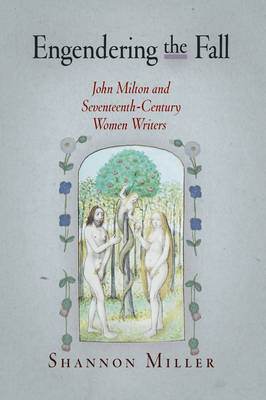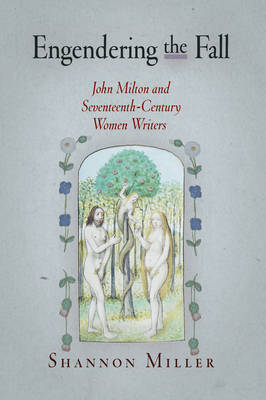
- Retrait gratuit dans votre magasin Club
- 7.000.000 titres dans notre catalogue
- Payer en toute sécurité
- Toujours un magasin près de chez vous
- Retrait gratuit dans votre magasin Club
- 7.000.0000 titres dans notre catalogue
- Payer en toute sécurité
- Toujours un magasin près de chez vous
Engendering the Fall
John Milton and Seventeenth-Century Women Writers
Shannon Miller
Livre relié | Anglais
108,45 €
+ 216 points
Description
Engendering the Fall John Milton and Seventeenth-Century Women Writers Shannon Miller "This is an ambitious book, tackling some central issues in the study of seventeenth-century literature and history, and the first book to bring interpretations of the Fall story by Milton and his female contemporaries, from the Jacobean period to the end of the century, into a sustained dialogue."--David Norbrook, University of Oxford "Engendering the Fall enriches our view of Milton, of women writers, and of the literature of gender and statecraft."--TLS The narrative of the Garden of Eden infused seventeenth-century political thought no less than it reflected attitudes toward the relationship between the sexes. Within the contemporary debate over political legitimacy, theorists who supported or questioned the monarchy turned explicitly to the narrative of the Garden of Eden and Adam and Eve to articulate their theories of governmental authority. Engaging this foundational relationship between gendered interpersonal and governmental organization, Shannon Miller turns to a body of texts produced in England that replot the story of the Garden. She sets a series of writings by women into conversation with the period's most important poetic rendering of the Fall, Milton's Paradise Lost, to illustrate how significant gender was to accounts of social and political organization, and to demonstrate how the Garden narrative plots the role of gender. Her multidirectional and multilayered conversation between numerous seventeenth-century women--such as Aemilia Lanyer, Rachel Speght, Lucy Hutchinson, Margaret Cavendish, and Mary Chudleigh--and Milton's Genesis epic crystallizes the interplay between the narrative of the Fall, the organization of political structures, and the extent to which both were shaped by cultural debates over the role of women. Shannon Miller is Associate Professor of English at Temple University and the author of Invested with Meaning: The Raleigh Circle in the New World, also published by the University of Pennsylvania Press. 2008 288 pages 6 x 9 ISBN 978-0-8122-4086-3 Cloth $65.00s £42.50 World Rights Literature, Women's/Gender Studies Short copy: Engendering the Fall argues that early seventeenth-century women's writing influenced Paradise Lost, while later seventeenth-century texts reworked central aspects of Milton's epic in order to reconfigure the politically resonant gendered hierarchy laid out by the story of the Fall.
Spécifications
Parties prenantes
- Auteur(s) :
- Editeur:
Contenu
- Nombre de pages :
- 288
- Langue:
- Anglais
Caractéristiques
- EAN:
- 9780812240863
- Date de parution :
- 25-06-08
- Format:
- Livre relié
- Format numérique:
- Genaaid
- Dimensions :
- 155 mm x 229 mm
- Poids :
- 589 g

Les avis
Nous publions uniquement les avis qui respectent les conditions requises. Consultez nos conditions pour les avis.






